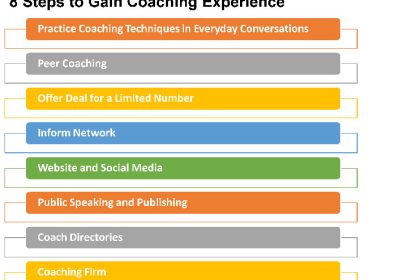Being a coach goes beyond the coach training, coaching certification, coaching experience, and mentor coaching steps involved to become a coach.
Being a coach includes living competency #2 Embodies a Coaching Mindset, living the Code of Ethics and being ethical, and living #28 in that Code of Ethics by adhering to the philosophy of doing good. 
What does it take to really be a coach? Being a coach takes work on an ongoing basis. It starts with becoming a coach and then moves into having your self-reflective practice, self-care, continuing education, and proactively doing good.
The steps for becoming a coach were covered in the previous blog. Let’s move now into being a coach.
Competency 2.2 says, “Engages in ongoing learning and development as a coach.” Continuing education is available free to members on the International Coaching Federation through the Communities of Practice. Chapters of ICF all over the globe offer free or inexpensive learning opportunities. Regional and global conferences are scheduled regularly for ongoing development.
Competency 2.3 says, “3. Develops an ongoing reflective practice to enhance one’s coaching.” What is an ongoing self-reflective practice? Options include meditation, yoga, review, and reflect on coaching sessions and the outcomes, walking, and engaging in discussions with other coaches.
Competency 2.6 and 2.7 say, “6. Develops and maintains the ability to regulate one’s emotions. 7. Mentally and emotionally prepares for sessions.” Competency 5.1 and 5.3 say, “1. Remains focused, observant, empathetic, and responsive to the client. 3. Manages one’s emotions to stay present with the client.” Each of these indicates the value of the coach having balance and practicing self-care to be prepared and able to apply the competencies. This includes time for self, exercise, healthy eating, healthy relationships, and fun.
In the ICF Code of Ethics Section IV, it says, “28. Am aware of my and my clients’ impact on society. I adhere to the philosophy of “doing good,” versus “avoiding bad.” This is a call to proactively consider and act for the benefit of others. The options are endless.
How do you want to proactively do good as a coach?





